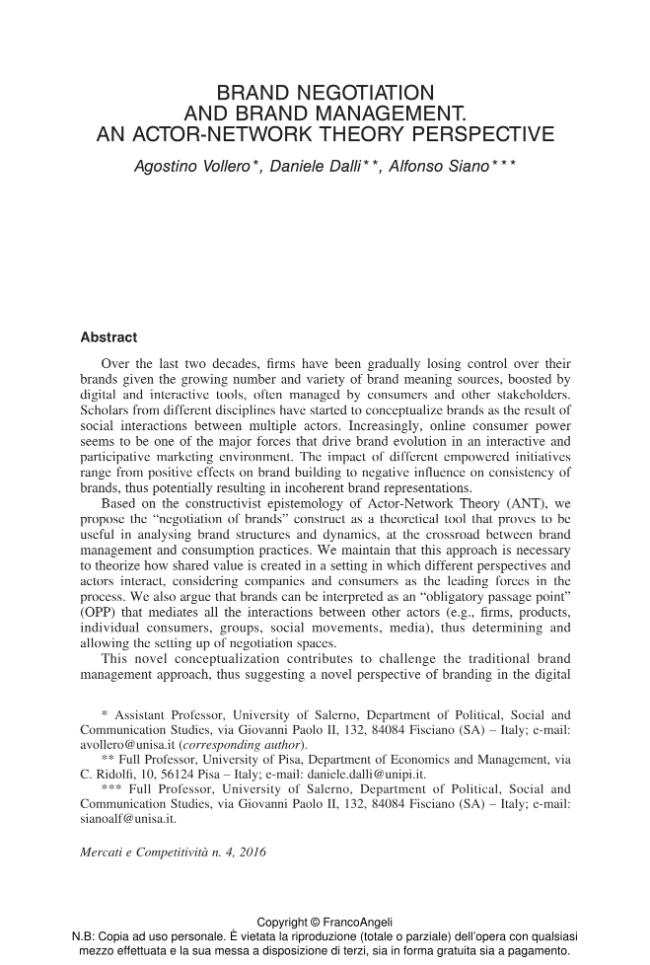Brand negotiation and brand management : an actor-network theory perspective
23-41 p.
Over the last two decades, firms have been gradually losing control over their brands given the growing number and variety of brand meaning sources, boosted by digital and interactive tools, often managed by consumers and other stakeholders. Scholars from different disciplines have started to conceptualize brands as the result of social interactions between multiple actors. Increasingly, online consumer power seems to be one of the major forces that drive brand evolution in an interactive and participative marketing environment. The impact of different empowered initiatives range from positive effects on brand building to negative influence on consistency of brands, thus potentially resulting in incoherent brand representations. Based on the constructivist epistemology of Actor-Network Theory (ANT), we propose the "negotiation of brands" construct as a theoretical tool that proves to be useful in analysing brand structures and dynamics, at the crossroad between brand management and consumption practices. We m
aintain that this approach is necessary to theorize how shared value is created in a setting in which different perspectives and actors interact, considering companies and consumers as the leading forces in the process. We also argue that brands can be interpreted as an "obligatory passage point" (OPP) that mediates all the interactions between other actors (e.g., firms, products, individual consumers, groups, social movements, media), thus determining and allowing the setting up of negotiation spaces. This novel conceptualization contributes to challenge the traditional brand management approach, thus suggesting a novel perspective of branding in the digital era that is grounded in the mediations between value and meaning contributions put forward by different actors. This approach becomes critical in current interactive marketplaces as it might allow brand managers to nurture different paths of brand development through the reconciliation of various stakeholders' instances. [Publisher's Text].
Is part of
Mercati e competitività : 4, 2016-
Articles from the same issue (available individually)
-
Information
ISSN: 1972-4861
DISCIPLINES
KEYWORDS
- Brand management, actor-network theory (ANT), consumer power, negotiation



